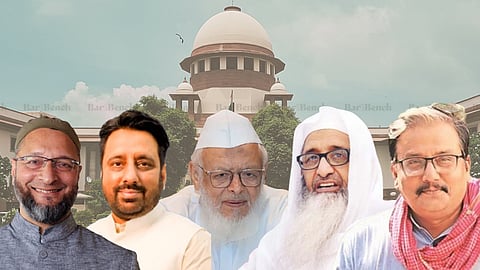
- Latest Legal News
- News
- Dealstreet
- Viewpoint
- Columns
- Interviews
- Law School
- Legal Jobs
- हिंदी
- ಕನ್ನಡ

On April 16, the Supreme Court is slated to hear ten petitions challenging the constitutional validity of the recently passed Waqf (Amendment) Act, 2025.